Slowly but surely, numerous countries are following the lead of the central Chinese ground zero of the coronavirus pandemic, Wuhan, by starting to gradually lift their lockdown restrictions.
The World Health Organization has urged caution to countries looking to ease restrictions, warning "the worst is yet ahead of us".
But, around the globe, countries have already started peeling back regulations little by little.
Here is an overview:
New Zealand
New Zealand announced on Monday it would reduce its coronavirus restrictions from a level four to a level three from next week, where they will remain for at least another fortnight.
Level three will allow for schools to re-open, more businesses to function and for restaurants to re-open for delivery services only.
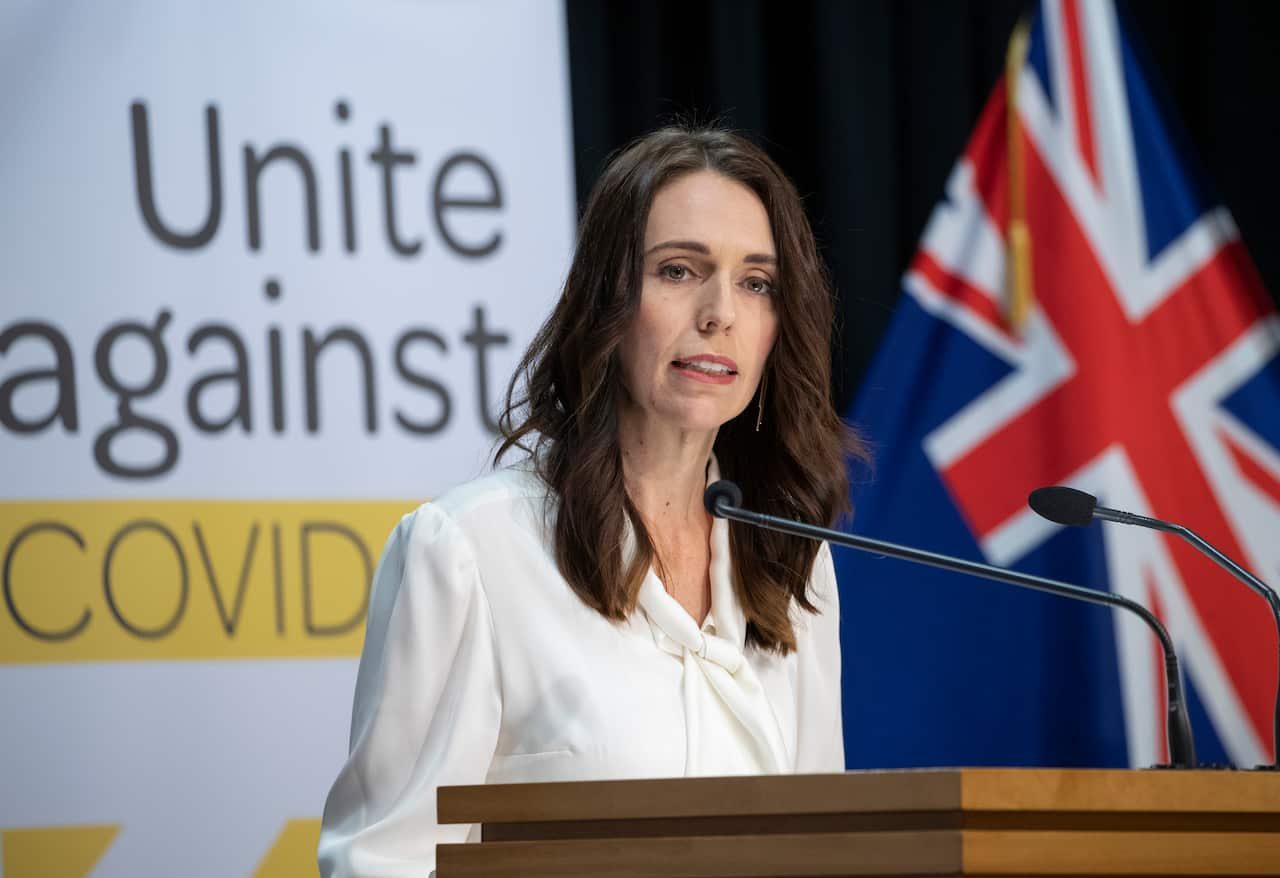
India
Although India’s national lockdown has been extended until May 3, on Monday workers in key sectors were allowed to go back to work.
They include those in agriculture, some manufacturing and construction industries, which employ millions of poorer Indians.
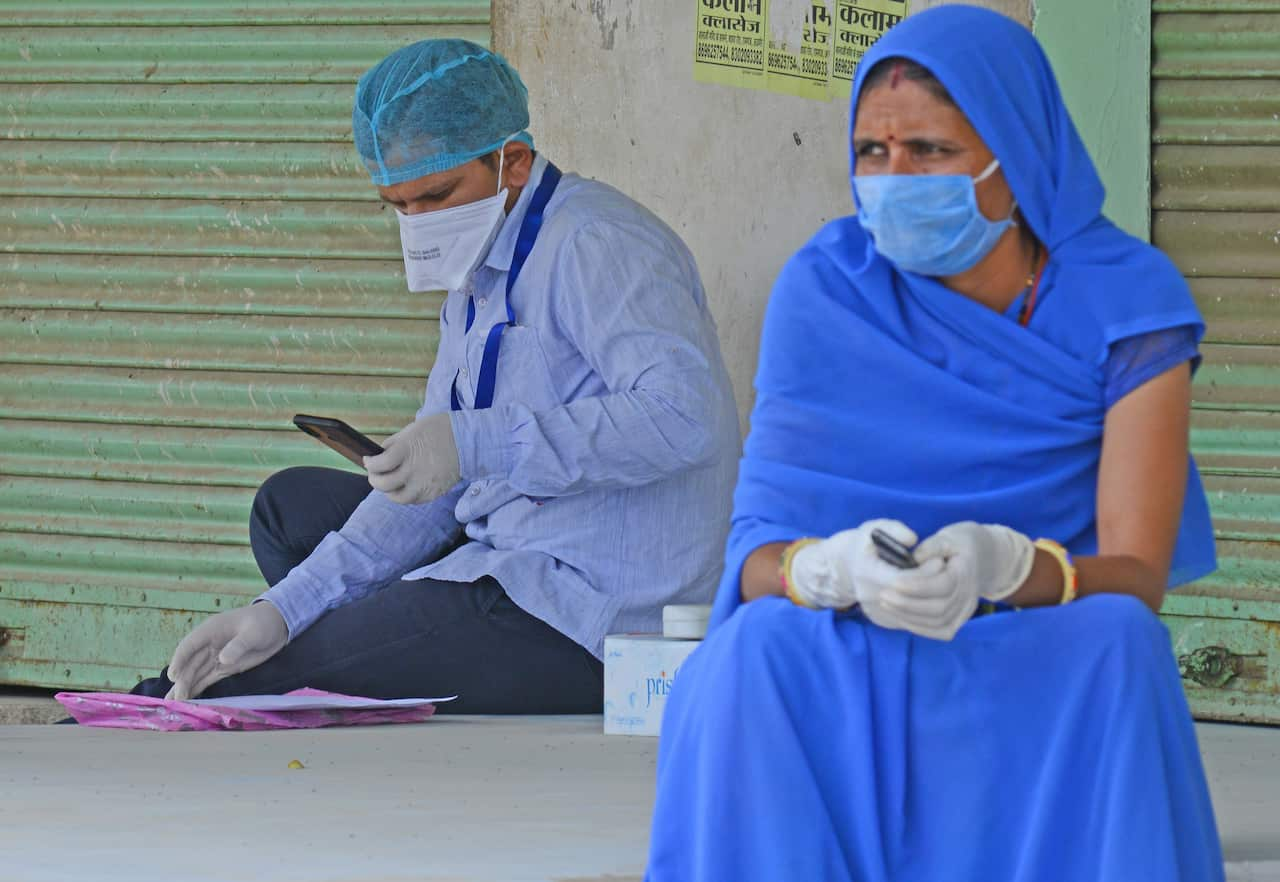
Germany
Germany on Monday allowed some smaller shops to reopen, while some schoolchildren will go back to school from May 4, starting with the eldest.
Among the stores allowed to reopen will be car dealerships, bookshops and cycling stores.
A ban on gatherings of more than two people remains in place and sports stadiums and concert halls will remain shut at least until August 31, and residents are still being asked to wear masks in public.
Large gatherings will remain prohibited until the end of August.
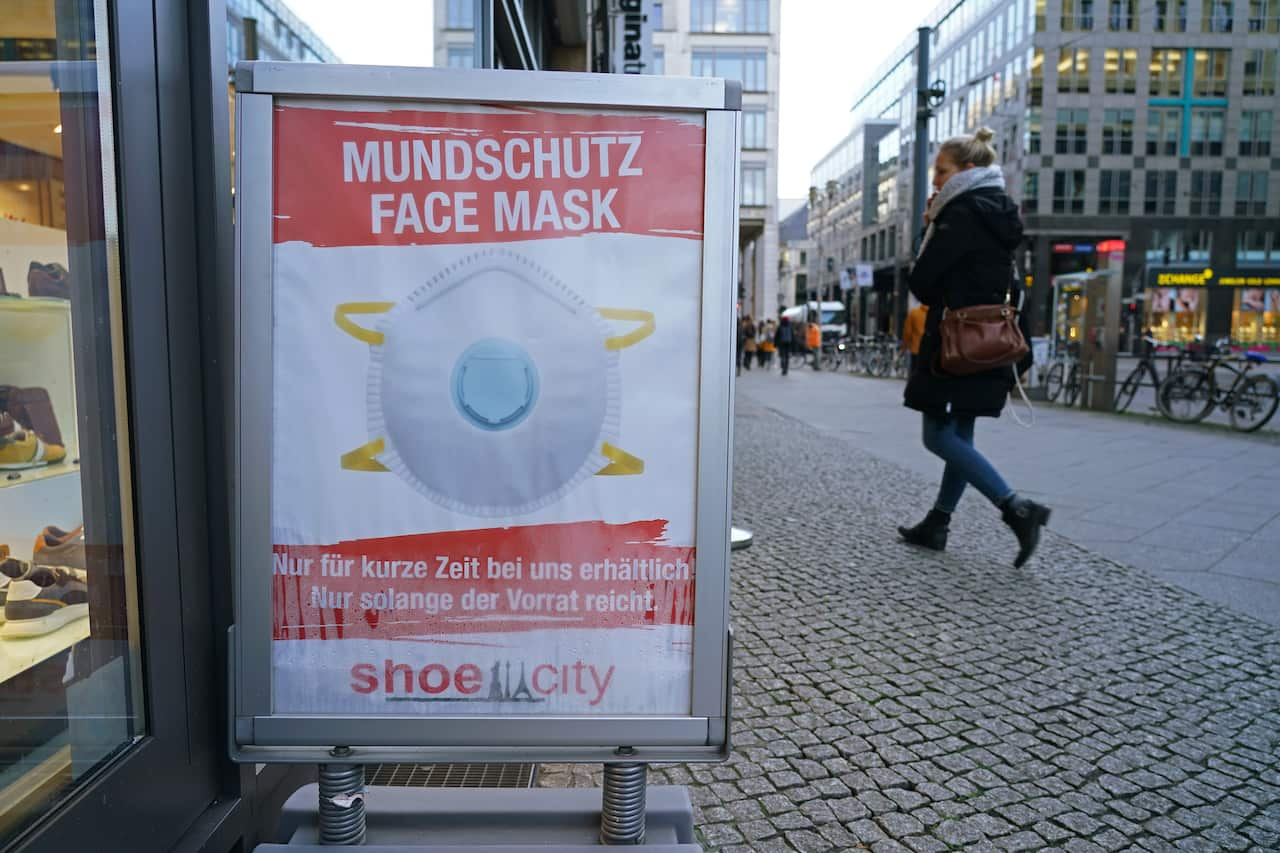
Italy
In Italy, which became the first European country to impose confinement rules on March 10, some businesses, including bookshops and laundrettes, were allowed to reopen on April 14 in some regions.
Stores selling clothes for infants and small children will also be allowed to reopen, but with limits on how many numbers can be inside the store at once.
Some of the worst affected parts of Italy's north will remain in a full lockdown, while other cities are transitioning to a "soft lockdown" first by removing restrictions on outdoor exercise on the condition a mask and gloves are worn.
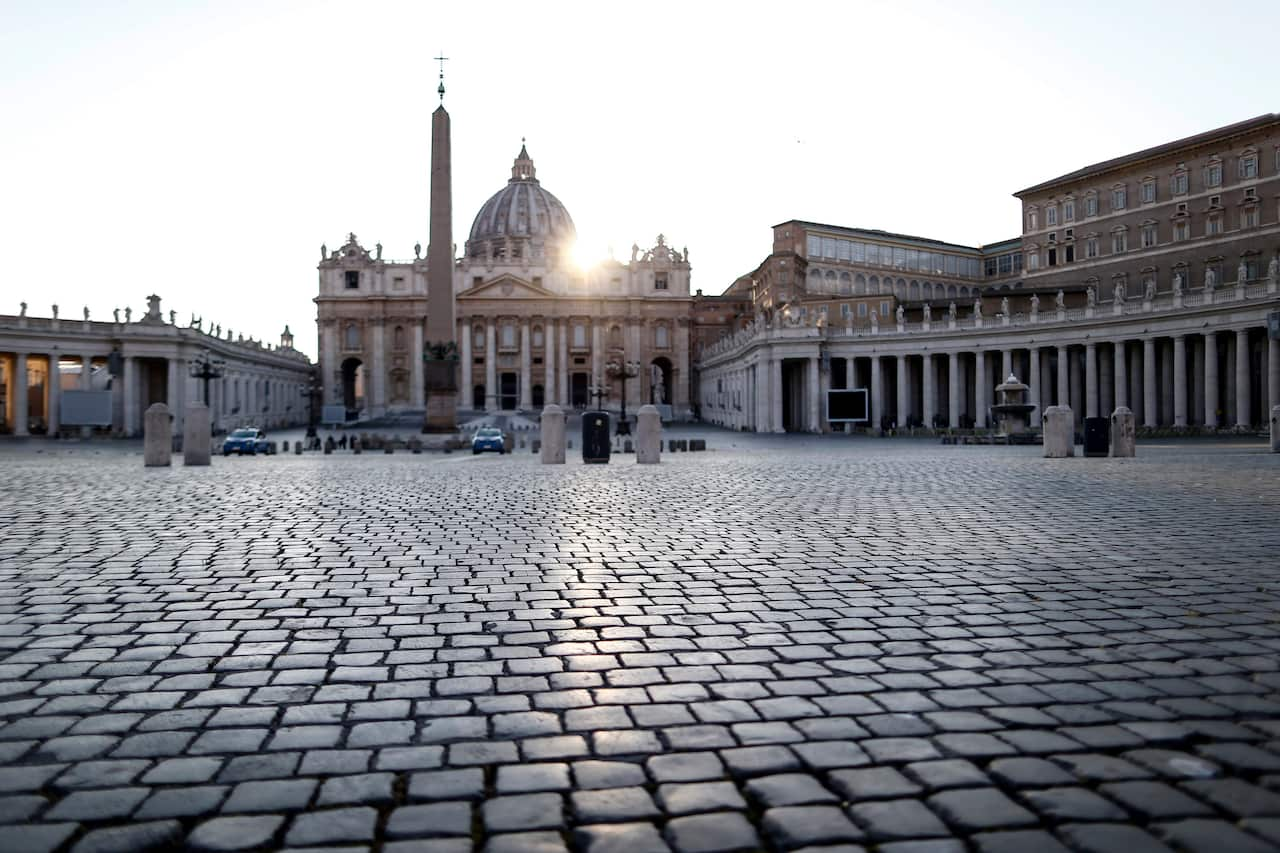
Spain
In Spain, construction and factory workers were allowed to go back to work on April 14.
About 300,000 non-essential workers in Madrid returned to work this week, with the police working distribute more than 10 million masks to those going back to the workforce.
For now, builders can only conduct work away from residential areas, which means home renovation projects will have to remain on hold.
On Saturday, the government said it would extend the lockdown by another fortnight until 9 May, although from 27 April conditions would be slightly eased to allow children to spend some time outside.
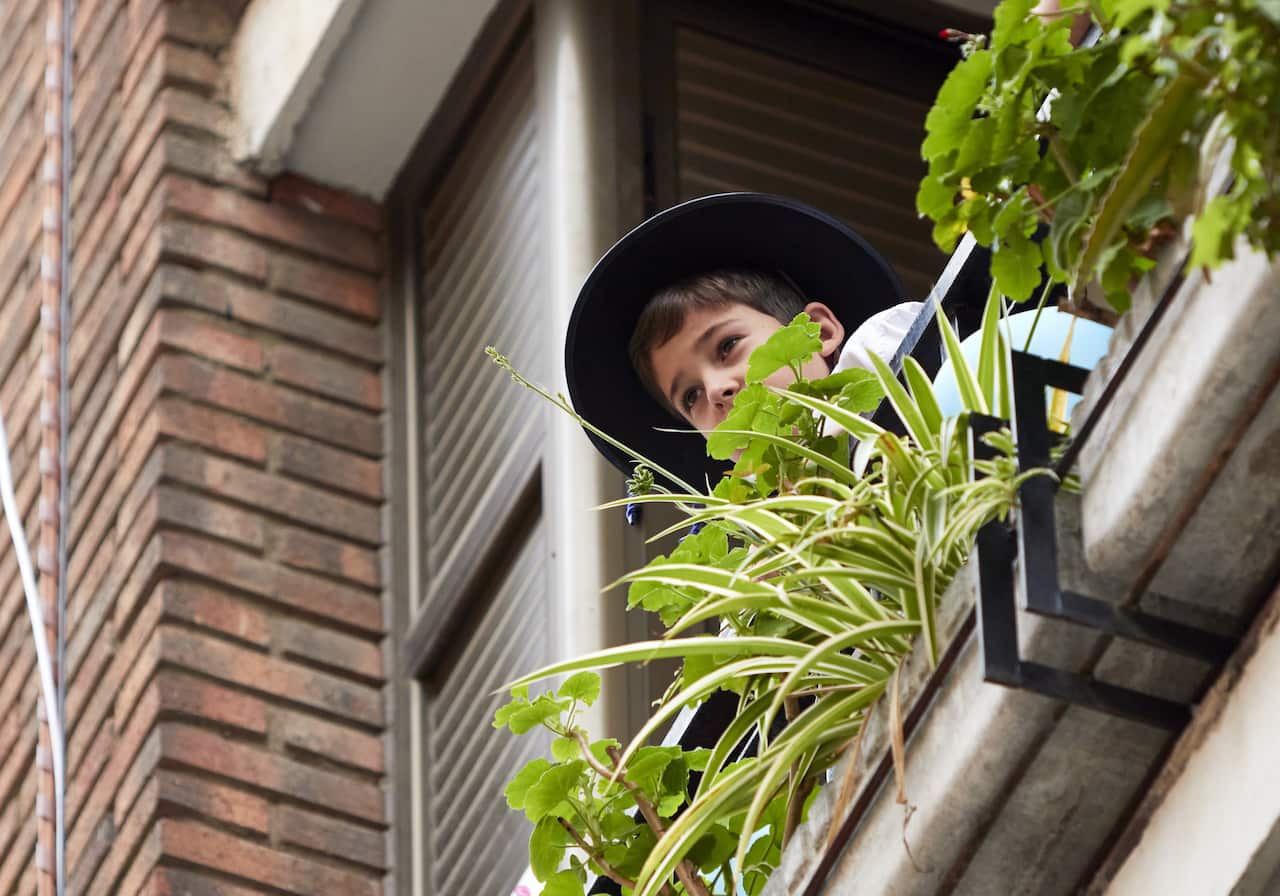
Czech Republic
The Czech government on Monday started out on a five-stage plan to ease its lockdown measures.
First in line to start reopening are open-air markets and crafts and trades with workshops, schools and universities.
Larger stores are expected to follow on May 11, with the government flagging early June for restaurants and shopping centres to reopen.
Austria
Austria on April 14, allowed small shops not selling food to reopen.
Gardening shops are among the stores allowed to reopen, but their customers must continue to wear masks until further notice.
Larger retail areas like shopping centres and hairdressers are expected to reopen next month.
Israel
Israel on Sunday allowed a reopening of high street shops, schools for children with special educational needs and a resumption of small-scale prayer meetings.
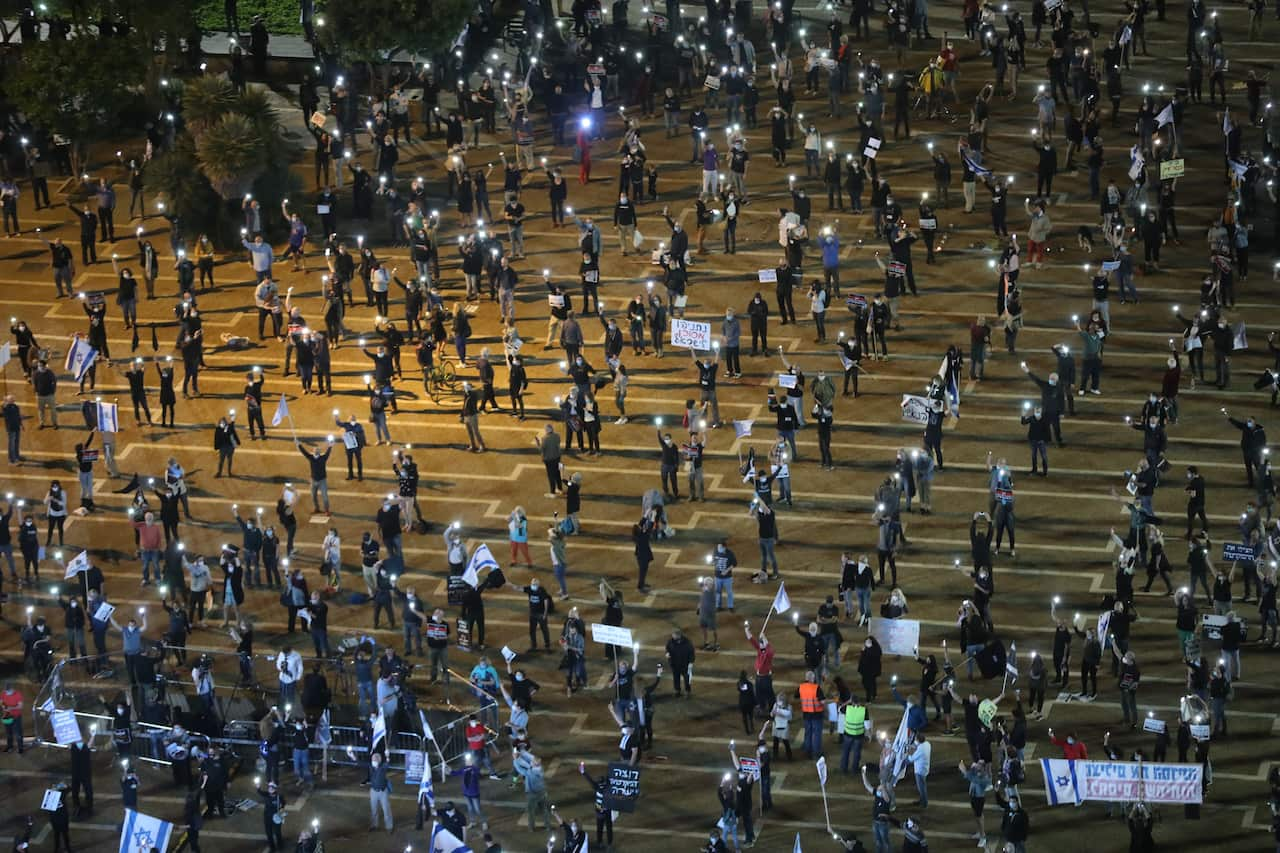
Denmark
Denmark, which has not imposed a total confinement, on Monday reopened some small businesses after five weeks of closure, including hair salons, massage and tattoo parlours, dentists and driving schools.
On April 15 it had reopened nurseries, kindergartens and primary schools.
Norway
Norway, which has also not confined its population, on Monday reopened kindergartens, on condition the children will be placed in small groups of three to six.
Norway's Prime Minister Erna Solberg has said she hopes school students of all ages will be able to return to their classrooms by the summer.
The ban on salons is also expected to be lifted by the end of this month.
Madagascar
The lockdown imposed in Madagascar's three main cities is to be progressively lifted from Monday, in the mornings from 6:00am to 1:00pm.
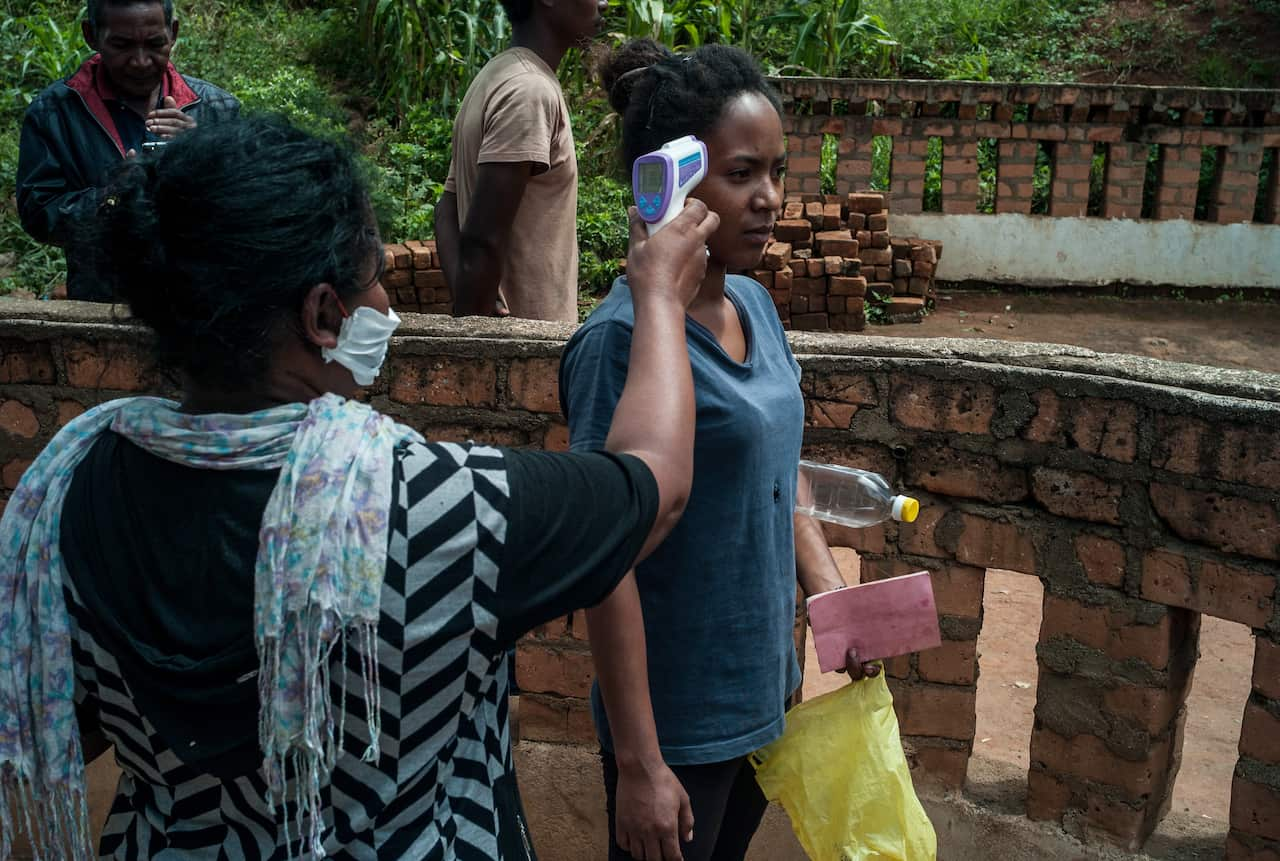
Albania
Albania on Monday allowed some businesses to reopen, including some firms in the agriculture, fishing, mineral, oil and textile sectors.
Slovenia
In Slovenia, from Monday small hardware shops, vehicle repair shops and dry cleaners were allowed to reopen, as were golf courses and badminton courts.
Helsinki, Finland
Finland's government on April 15 lifted a blockade on the Helsinki region, which had shut roads and rail services into and out of Uusimaa county.
The Finnish Government is also considering lifting non-essential traffic around Helsinki, but says most of the other restrictions will remain until mid-May.
China
The central Chinese province of Hubei started ending restrictions on March 25.
Its capital Wuhan, which led the world with an unprecedented quarantine lockdown in January, the month after the novel coronavirus first broke out there, finally lifted it on April 8.
City authorities have since put dozens of its residential neighbourhoods back into quarantine after so-called "asymptomatic" people were detected there.

Ghana
Ghana on Monday ended a three-week lockdown on two key regions around the capital Accra and second region Kumasi.
Kinshasa, DRC
The area of Gombe in Kinshasa, which houses the Democratic Republic of the Congo's main institutions, banks and foreign embassies, will start opening Tuesday its supermarkets, groceries and banks.
People in Australia must stay at least 1.5 metres away from others and gatherings are limited to two people unless you are with your family or household.
If you believe you may have contracted the virus, call your doctor (don’t visit) or contact the national Coronavirus Health Information Hotline on 1800 020 080. If you are struggling to breathe or experiencing a medical emergency, call 000.
SBS is committed to informing Australia’s diverse communities about the latest COVID-19 developments. News and information is available in 63 languages at sbs.com.au/coronavirus.

